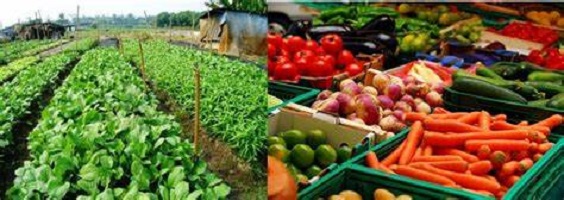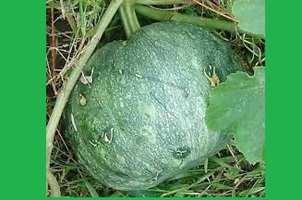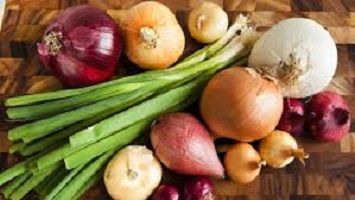Vegetable Farming | Profitable Vegetables to Grow in Nigeria
Vegetable farming is one of the silent money makers in Nigeria. It is also, one of the agribusiness opportunities that give quick returns on investment to farmers.

People used to conceal their identities as farmers until now.
But the story has changed; farming, like every other occupation, is now a noble career.
Because of the money, it mints for vegetable farmers, vegetable farming in Nigeria is now a serious sector.
As of present, it is one of the simplest agricultural engagements a farmer can undertake and the demand for edible vegetables is all year round, creating a genuine stream of income for the farmer.
We don’t settle on local vegetables alone anymore, foreign vegetables have been introduced and all are doing well.
Moreover, vegetables are still in high demand all over the world. This is due to the health advantages they offer to the human body.
What is Farming for Vegetables?
Vegetable farming is the production of vegetables for human consumption.
The cultivation of vegetables is a practice that started in different parts of the world some centuries ago.
Why You Should Start Vegetable Farming in Nigeria
The big reason for starting this business is the high profitability of commercial vegetable farming in Nigeria.
The major component of our daily meal is vegetable crops and leaves. This means that vegetables in Nigeria are always in high demand.
Besides, vegetables grow very quickly, as well as selling quickly; giving you fast returns. Therefore, why wait for white-collar jobs which are not forthcoming?
Lastly, you need to begin the vegetable farming business, particularly because this business needs little startup capital.
How to Start Vegetable Farming in Nigeria
It’s very easy to start vegetable farming in Nigeria, you can even start with half a plot of land.
This can be done in your backyard or spaces around your compound. Some vegetables also serve as ornamental plants.
As the case may be, you can start by clearing the space to use, making beds, or allowing it to be plain, and nurturing the vegetables to maturity. And then, harvest them eventually.
Planting of the vegetable can be for personal use or commercial.
Vegetables Grown in Nigeria
Some People will always jump to familiar vegetables like ugu, water leaf, efo, spinach, bitter leaf whenever a vegetable is mentioned. Vegetables are many and we have various kinds:
We have leaf vegetables, pod vegetables, seed vegetables, root vegetables, fruit vegetables, flower vegetables, and bud vegetables.
All these vegetables have their different benefits and nutrients, together with some common features and nutrient compositions.
Every vegetable with strong coloring contains vitamins, often very much. Green (in vegetables) indicates Vitamin B9, C or Pro-Vitamin A. Red or orange in vegetables indicates Pro-Vitamin A.
Leaf vegetables for example cabbage, lettuce, chard, spinach, sorrel are usually low in energy and rich in Vitamin B9. They usually contain high levels of Pro-Vitamin A and Vitamin C.
Root vegetables like beet, radishes, carrots, etc. usually have few calories. Instead, they have much fiber, and some contain high levels of Pro-Vitamin A.
Seed vegetables for example flageolet beans are higher in calories (60-90 kcal/100 g). They are also very high in fiber, iron, and magnesium.
Pod vegetables like wax beans, mange-tout, green beans, runner beans, peas, and fruit vegetables are low in calories. They are a good source of fiber, Vitamin B9, and Vitamin C.
Flower vegetables and bud vegetables like broccoli, artichokes, cauliflower, etc. are low in calories but high in fiber.
A glimpse look at the list of vegetable in Nigeria would look like the list below:
- Okra
- Ugu
- Spinach
- Waterleaf
- Pepper
- Cabbage
- Carrot
- Cucumber
- Tomato
- Onion
- Tete
- Soko
- Ewedu
- Eggplant
Exotic Vegetables
- Celery
- Cauliflower
- Radish
Most Profitable Vegetable to Grow in Nigeria
Every vegetable, depending on your region, is profitable. Demand varies by location.
In Akwa Ibom State, for instance, water leaves are consumed the most. This is because many soups such as afang soup, Atama soap, editan, and edikan ikong soup are used in the preparation. Then, ugu
Normally, the most profitable vegetables in Nigeria are;
- Ugu
- Waterleaf
- Soko
- Ewedu
- Tete
- Cucumber
Dry Season Vegetable Farming
Dry Season vegetable farming is perfect. During the dry season, market traders will be the ones looking for you to buy and not the other way round.
There are some business owners who only cultivate vegetables during the dry season.
Profits in Vegetable Farming
You can buy Ugu seeds of #5,000, plant them in a piece of land and spend about #10,000 in farm management.
In a few weeks, you will be making #5,000 every 2 days. That is one of the reasons why vegetable farming is very lucrative in Nigeria.
Challenges in Vegetable Farming
Consumers prefer vegetables that are fresh so know your target markets.
However, the vegetable business’s number one challenge is sustainability.
We all know vegetables are perishable. One week is the best vegetable can sustain. But you have to pasteurize then frozen them to stay longer,
Bottom Line
Organic vegetable farming is still an untapped field of vegetable farming, so start yours today and continue to smile to the bank.



Pingback: Orange Farming Business - Tips on How to Start in Nigeria - 9jafoods